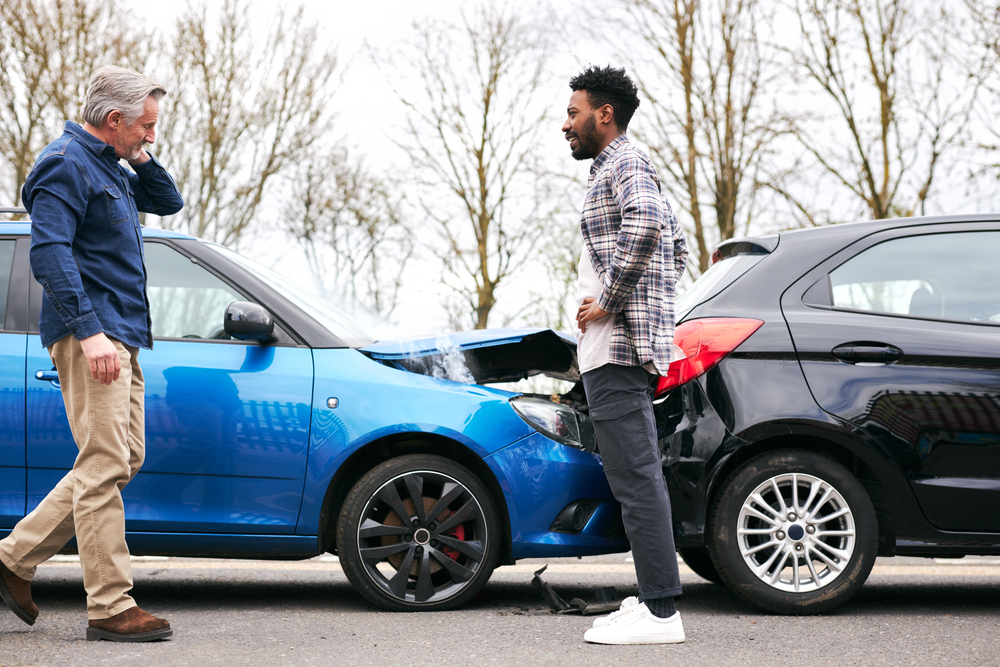Free Consultation
(314) 500-HURT100+ years of combined experience and over $200 million won for our clients in Missouri and Illinois. Contact a personal injury lawyer near you.
Free Consultation
(314) 500-HURT[youtube]https://www.youtube.com/watch?v=aBCSmwCOx5M[/youtube]
What do you do if you hear a siren on the roadway or you’re pulled over by law enforcement? You probably can hear that
siren in the background as I’m taping this. If you hear a siren either coming from in front of you or coming behind you,
slow down, not abruptly slow down but slowly slow down and start moving over to the right-hand side of the roadway. If
it’s an ambulance or officer coming this way, they need you over there so that they can clearly go there.
Remember, the other drivers may not follow those rules like you do, so the ambulance, the officer, the fire truck coming
this way may need to go in your lane. If they’re coming from behind and it’s a crowded area, you need to start moving
over so that the ambulance or the fireman has room to get by you, and so think about that. Just don’t think that you
don’t have to or the ambulance is going to turn, it’s not going to get to you, or you can go a little bit farther, you
don’t need to quite stop yet. I tell you, I never got more appreciation for this than when me or one of my family
members has had to be in an ambulance. If you’ve ever been in that position where it’s an emergency situation, you gain
sudden empathy and appreciation for when you’re a driver later on pulling that, so have that empathy now. Pull over for
emergency vehicles.
Now, what do you do if you’re pulled over by law enforcement? Well, the rules of the road in both
Illinois and Missouri and other states have specific rules about that. Slow down and pull over safely to the side of the
road. Don’t stop in the middle of a crowded highway during rush hour. If there’s a side street, pull over on that side
street. Let the officer know by clear signals what you’re doing. When the officer comes, do not get out of your vehicle.
Stay in your driver seat with both hands clearly on the side of the steering wheel until the officer instructs you
otherwise. Don’t be ruffling around in your console and your other things for your driver’s license and insurance. Be
there. Let the officer know it’s safe. The officer doesn’t know that. Officers have tough jobs. They encounter great,
nice, law-abiding people, they also encounter criminals. That’s their job. They don’t know who you are when they come up
to you, and they don’t know what state you’re in, so have your hands on the steering wheel and follow the officer’s
instructions.
Do not get out of your vehicle. The officer doesn’t know what you’re doing. Don’t start getting into your trunk for your
insurance card. Turn on your interior light if you’re stopped at night. Comply with the officer’s request to see your
driver’s license, insurance and proof of registration of your vehicle. If they’re in your glove box or under your seat,
inform the officer of that fact and tell them you’re going to get it, so they know what’s going on.
If you’re issued a ticket requiring a signature, sign it. You’re just acknowledging that you got a ticket for speeding,
or failure to yield the right of way, or a brake light, or your tags are old on your license plate. Sign it. You’re not
admitting guilt to that when you sign it.
If you’re suspected of drunk driving, do what the officer says. Be aware that you may have committed some minor
traffic violation without realizing it. There’s no reason to get mad to the officer for something the
officer didn’t do or may suspect. You may later be in the right. The officer may have seen the wrong tag. You may have a
reason why you weren’t driving with your lights on. You may have just forgotten. Many officers let you off with a
warning regarding something like that. If an officer chooses to issue you a traffic violation instead of giving you a
free pass, don’t get mad about it. That’s the deal. When you become a licensed driver, you agree to abide by the rules
of the road and the officers need to enforce that.
Now, also know, as the law says, at the same time, as well as you treat the officer like a gentleman or a lady, you as
the driver are to be treated with dignity and respect by the officer. If you believe that an officer ever acts
inappropriately during a traffic stop, you should report that conduct as soon as possible to the officer’s superiors.
That comes out of the driver’s guide. That’s the law.
Officers are required to provide you their names and badge numbers upon request. They have to advise you that stuff.
That doesn’t mean you get into an officer’s face to try to prove your point because you’re angry that you got stopped.
Remember to relax and take a breath if the officer pulls you over. You don’t want to escalate any situation. You want to
de-escalate and comply with the officer’s reasonable requirements.
Remember too, back to what I said in the beginning, in terms of looking out for these sirens and lights, move over and
pull over for emergency vehicles before you have to.
In a crowded highway — this bugs me too — is when the ambulance come on the left to try to get to an incident, everybody
pulls behind that ambulance to try to go faster. Relax. You’re only going to change your arrival time by a matter of
minutes by doing those kind of shenanigans, so try to avoid them. Thanks. That’s all I have. Thanks for listening.
Founder | Injury Attorney
Gary Burger has dedicated his career to standing up against bullies. The founder and principal attorney of Burger Law | St. Louis Personal Injury Lawyer has helped hundreds of Missouri and Illinois individuals and families recover th …
Years of experience: 30 years
Location: St. Louis, MO

Similar Blog Posts

In most cases, you are not allowed to turn left at a red traffic light unless you are turning from a one-way street onto another, and there are no signs prohibiting it. Always chec... read more.

Firing a lawyer is a usual option, but the timing can affect your case. For instance, if your trial is near, switching attorneys may cause delays in the legal process. You have the... read more.

Rear-end collisions are one of the most frequent types of car accidents in St. Louis and across the country, often resulting in property damage, personal injuries, and financial ha... read more.

This page has been written, edited, and reviewed by a team of legal writers following our comprehensive editorial guidelines. This page was approved by Founding Partner, Gary Burger who has more than 30 years of legal experience as a practicing personal injury trial attorney. Gary’s robust legal knowledge is recognized by his peers as demonstrated by his industry awards and frequent Continuing Legal Education (CLE) lectures.
NO FEES UNTIL WE WIN YOUR CASE
We offer free consultations and are available 24/7 to take your call. Live chat, text, and virtual meetings are available.
or call us at